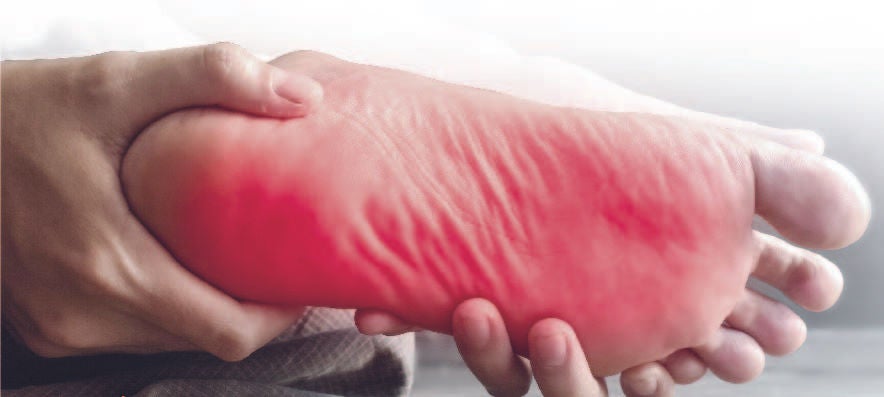
That ‘pins-and-needles’ feeling you get in your feet is a familiar sensation to most and usually not something to worry about. But, it might be time to see a doctor if this uncomfortable tingling happens frequently and is accompanied by other symptoms. Dr Koh Yeow Hoay, Head of Neurology, Changi General Hospital and Consultant, Department of Neurology, NNI explains more.
Your fingertips are some of the most sensitive parts of your body, because they contain many more nerve endings as compared to other areas such as your elbows. They send information to your brain about whether something is hot or cold, sharp or smooth, soft or hard. These nerve endings are part of your nervous system and they help you understand the world around you.
The body’s nervous system is split into two parts:
- The central nervous system, which consists of our brain and spinal cord.
- The peripheral nervous system, which consists of the rest of the nerves throughout the body.
The peripheral nervous system relays information between the central nervous system, and the rest of the body. In some people, nerves in the peripheral nervous system become damaged, leading to various odd sensations in the body. This is known as peripheral neuropathy, a common neurological condition that affects roughly one in three people above the age of 80 worldwide.
Symptoms vary depending on the type of peripheral nerves affected.
| Types of nerves | Symptoms when damaged |
| Sensory nerves in our skin and fingertips detect touch and temperature sensations. |
|
| Motor nerves control movement, and are found around our muscles. |
|
| Autonomic nerves control voluntary or involuntary functions, and are found in our organs like our heart and stomach. |
|
The condition usually starts in the feet and legs, reaching the hands and fingers only in advanced stages. Tingling, burning pain and numbness in the feet and lower limbs can have significant impact on the activities of daily living, including walking, climbing stairs and sleeping. Peripheral neuropathy in particular is often underdiagnosed because of a lack of awareness among both patients and doctors.
There are many causes of peripheral neuropathy. These include:
- Diabetes mellitus - this is the most common cause of peripheral neuropathy.
- Vitamin deficiency - Vitamins B1, B6 and B12 help to maintain a healthy nervous system.
- Alcohol abuse - alcohol can be toxic to nerve tissue and alcohol abuse can also result in poor nutrition.
- Chronic kidney disease – peripheral neuropathy is the most common neurological condition in patients with chronic kidney disease.
- Toxins and drugs, e.g. cancer chemotherapy, anti-tuberculous medication, some antibiotics, some anti-seizure medication, industrial toxic substances like lead.
- Hereditary, e.g. Charcot-Marie-Tooth disease.
- Other illnesses, e.g. Human Immunodeficiency Virus (HIV) and connective tissue diseases such as Systemic Lupus Erythematosus (SLE).
To read more about peripheral neuropathy, click here.
This article was published in the National Neuroscience Institute's NeusLink magazine, which covers articles about NNI updates and brain, spine, muscle and nerve conditions in English and Chinese - to read more articles, click here!













 Get it on Google Play
Get it on Google Play